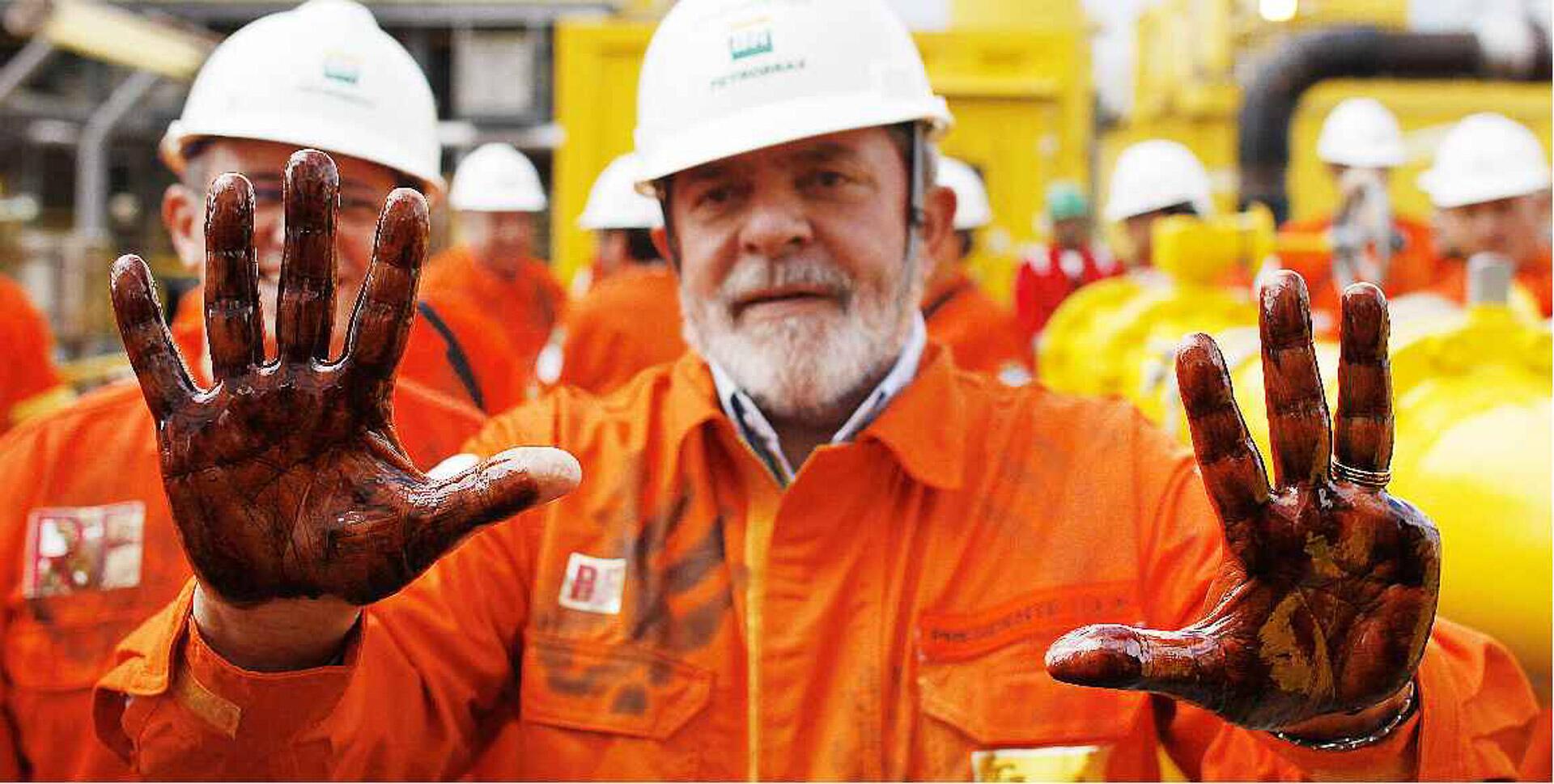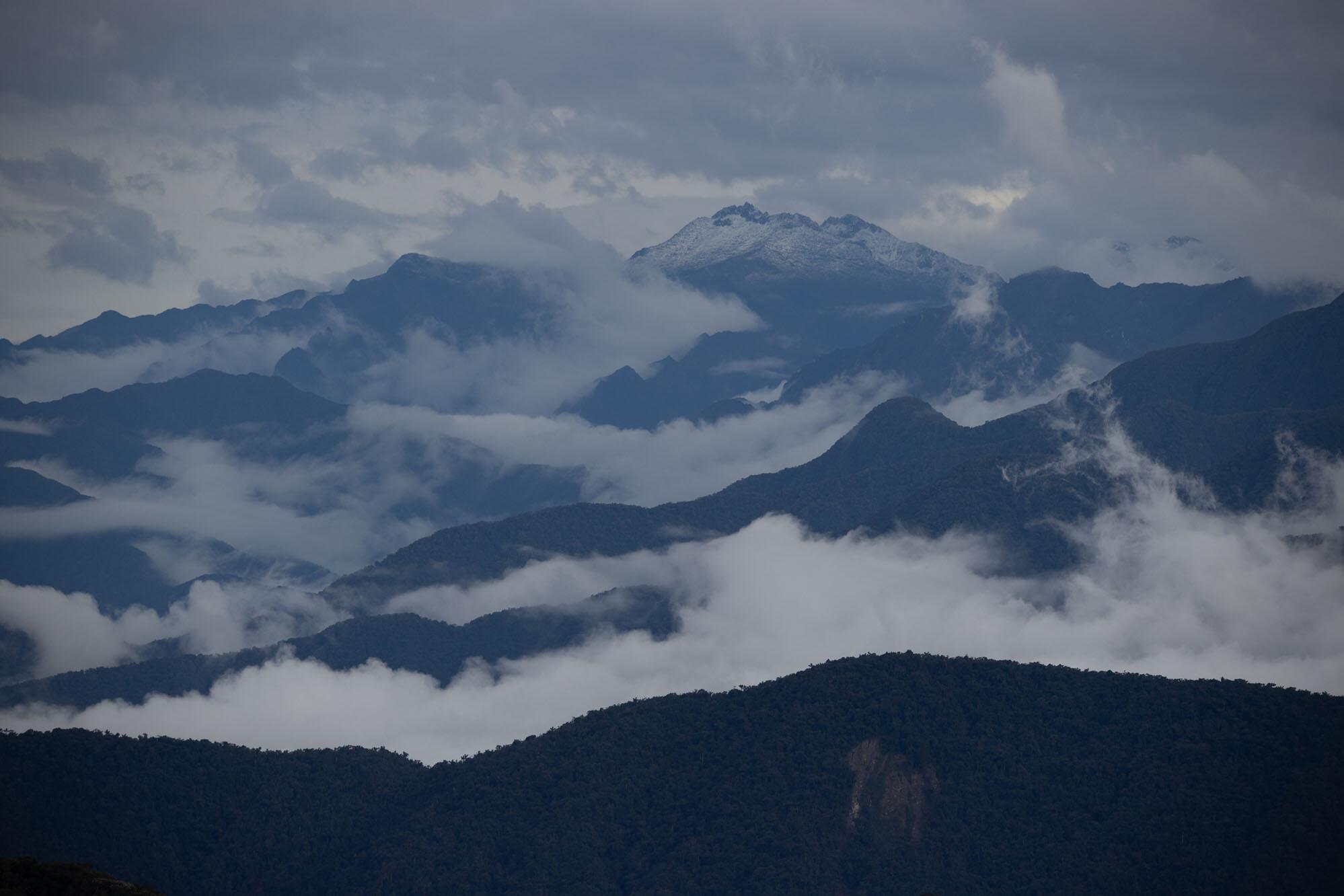Dear community,
Colombia’s Gustavo Petro was spot-on when he pointed out the dilemma facing Lula, Brazil, and most of the world’s leftist and center-left governments. “The right-wing [governments] have an easy out, which is denialism. They deny science. For progressives, it’s very hard. It creates another type of denialism: talk of transitions,” he said at the Amazon Summit, recently held on August 8 and 9. Petro is referring to discourse on the “transition” to renewable and non-polluting energies that government leaders like Lula are using to justify the continued exploration of fossil fuels. As reported by SUMAÚMA, Colombia’s president worked hard to convince his colleagues to agree to end oil exploration in the Amazon, but he was left talking alone. His isolation is a sign of what has terrified the Greta Thunberg generation of youth activists: the difficulty of getting politicians, mostly men forged in – and by – the twentieth century, to be capable of making decisions that go against their most entrenched beliefs – specifically the urgent decisions to stop the planet from warming by more than 1.5 degrees Celsius.
It is evident that these rulers are thinking only of short-term benefits – in the case of Brazil’s government, to have better economic growth, while also guaranteeing resources to produce policies that lead to the fulfillment of social promises and reelection in 2026. Also evident is lobbying by the fossil fuel industry, which has used the corruption of some scientists and supposedly scientific institutes to successfully delay the energy transition by decades, producing lies as if they were science, with most of the press serving as an accomplice. And keep in mind that they persist in using a variety of tricks to continue production.
However, it is also necessary to point out the subjective effect running through decisions. The generations holding power in today’s Brazil were shaped by over half a century of nationalist fossil fuel propaganda touting oil as the best source of a nation’s wealth. And this propaganda shaped the hearts and minds of today’s decision-makers – or, when it comes to mitigating and adapting to climate change, the hearts and minds of those who oftentimes do not make the decisions that should be made.
When pointing out that the left’s denialism was articulated under the supposedly responsible shield of the “energy transition,” Colombia’s president said that it was “complete nonsense” to talk about the climate emergency and continue to explore fossil fuels. Petro not only took the leading role at a summit that Lula was hosting, but also laid bare Brazil’s contradictions. Up until the end of last year, the country was governed by Jair Bolsonaro, a member of the extreme right who encouraged destruction of the forest and made sure the perpetrators of deforestation would go unpunished. Brazil is now led by Lula, a member of the center-left who was forged as a politician in factory union movements. The symbolic image representing the prosperity of his second term, which ended in 2010, was hands dirtied with pre-salt oil. Thirteen years later, Lula is back in power without a chance of pretending not to notice that oil and other fossil fuels are the villains leading our planet-home to collapse by transforming the climate and, with it, the geography that humankind believed to be unchangeable. Yet this knowledge seems to be insufficient for him to do what is necessary.

Luiz Inácio Lula da Silva collects oil produced from pre-salt reserves in the Baleia Franca field, in 2010, in the state of Espírito Santo. Photo: Ricardo Stuckert
So much so that oil exploration in the Foz do Amazonas basin, in Brazil’s Equatorial Margin, represented the biggest split in the first semester of Lula’s third term. The project by Petrobras, Brazil’s state-owned fossil fuel company, was blocked by Marina Silva, the head of the Ministry of Environment and Climate Change, as exclusively reported by SUMAÚMA. This was, however, a pill that most of the government te fused to swallow. Not even the president. During an interview right before the Summit began, Lula provided assurances that the people of the Amazon could “keep on dreaming” about oil exploration in the Foz do Amazonas basin. He could have been mistaken for Bolsonaro when, on the eve of the summit, he said “[The Amazon has to be a] space for generating wealth for the people, not a sanctuary.”
Lula continues to be an emblematic character of the twentieth century, with the belief that man is capable of resolving anything and is, of course, at the center of the universe. Clearly, in this mentality, which he shares with “market men,” nature is at the service of and is only valuable when it is useful for humankind. The world has just experienced its hottest July ever. In just the last few days, there have been catastrophes caused by extreme events from Hawaii to China, and Antarctica is melting at unprecedented levels. Yet the left represented by Lula believes humans still control time. In the minds of this generation of politicians, calcified in the twentieth century, money can be made from oil to create more consumers of goods while slowly making the energy – or “green” – transition.
In the final document that came out of the Amazon Summit, the expression “point of no return” is used four times to refer to the limit that the forest is rapidly reaching, the limit after which the biome will no longer be able to regenerate. Nonetheless, in the minds of politicians like Lula, there is time to calmly plan the transition while encouraging the sale of fossil fuel-powered cars and inviting colleagues to chow down on Amazonian beef at a cookout. Yet even so, it must be said: Lula is the best we have.
Aging is a movement. So the problem isn’t aging; rather it is ceasing to travel in the field of ideas, failing to remain open to the indetermination of life and its confluences, shutting your eyes – and brain – to the challenges of the commotion that was handed to us to experience. Some of the world’s most powerful climate intellectuals are women and men from the same generation as Lula or from the generation immediately preceding him. Marina Silva, just a little under a decade younger than Lula, is herself a powerful thinker when it comes to a planet undergoing climate change. Raoni, who Lula left waiting once again, this time at the Amazon Summit, is thought to be over 90 years old and is a very modern thinker.
Be that as it may, facts and statements unfortunately show that the decisions that will determine quality of life in the coming years and decades depend on politicians, from the right and the left, who are mostly denialists, according to the thinking about denialism proposed by SUMAÚMA. At this point, believing that climate change was produced by humankind is obvious – and is scientifically proven. It is not enough to stop someone from being a denialist. Being able to say that you’re not a denialist means being capable of living according to the emergency of this time. Immediate and ongoing action is needed to stop the planet’s warming, which has already launched us into the age of extreme events.
At the August 11 launch of the new Accelerated Growth Program, Finance Minister Fernando Haddad (Workers’ Party) was introduced as the leader of an aggregated project: the “Ecology Transformation Plan.” “It’s about creating a new conduct and attitude in relation to the environment. A new type of interaction with nature and the life of the planet,” he said. We’re hoping that Haddad understands that there is not one single day left to wait – unless catastrophe is the route chosen. The clock ran out long ago on upstanding discourse that fails to become action.

Colombia’s Sierra Nevada de Santa Marta, a range with peaks higher than 5,700 m (18,700 ft), affects the region’s climate and winds. Photo: Sebastian Di Domenico/Dromómanos
In this newsletter, we are pleased to kick off our partnership with Dromómanos, an independent news producer from Mexico, with its Colapso project. Over three months, some of the best journalistic writers in Latin America will talk about the effects of climate change. In the first article, Colombians Santiago Will and Sebastian Di Domenico follow a drop of water formed in the Atlantic Ocean to show how the wind shapes life as we know it – the same wind that is transforming as the planet warms. The wind has rarely been described in such talented prose. It’s beautiful – it’s also a real-life horror movie that we’ve already begun to experience.
SUMAÚMA is no denialist. We know the facts in-depth and we act through journalism to provide the best information to our community of readers. Thanks for helping us to get our letters to their destinations.
Eliane Brum
Sower and director of SUMAÚMA
Fact check: Douglas Maia
Spell check (Portuguese): Elvira Gago
Translation into Spanish: Meritxell Almarza
English translation: Sarah J. Johnson
Photography editing: Lela Beltrão
Page setup: Viviane Zandonadi




